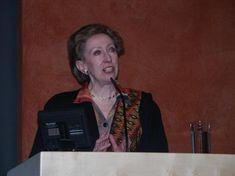
Ministers today unveiled the future shape of support for farmers in England under reforms of the Common Agricultural Policy (CAP).
Last year's deal by European agriculture ministers saw the most radical reform of the CAP since its inception by breaking the link between subsidies and production ('decoupling').
Now Margaret Beckett, secretary of state for environment, food and rural affairs has unveiled 'a decisive irreversible and forward-looking shift consistent with the direction that we've already set in the Sustainable Farming and Food Strategy and in the CAP reform negotiations last June.'
The reforms put into effect a central part of the Curry Commission recommendations.
Today's decision means that:
* England will decouple fully in 2005 and move towards a flat rate Single Farm Payment to farmers.
* Only farmers active in 2005 will qualify for payment.
* There will be an eight-year transition period to the flat rate.
* England will be split into two regions - land in the severely disadvantaged areas of the less favoured areas and all other land in England. Different flat rates will apply in these regions.
* No use of 'national envelopes' in England.
* Payments will depend on farmers meeting 'cross-compliance' conditions - government will consult on these standards soon and work to ensure they are implemented effectively with minimum bureaucracy.
Beckett said in an Oral statement to Parliament:
“I have been guided by several key principles, namely: coherence with the Curry Commission report and our own Sustainable Farming and Food Strategy launched in 2002, in particular with the emphasis in both on bringing the industry closer to the market and on the increasing importance of environmentally-sensitive farming; consistency with our wider objectives for the CAP, including greater simplicity, transparency, minimal bureaucracy and as few deductions as possible from the basic payment available; and the need to attract the widest possible support of the stakeholder community, for ongoing payments to farming which, we believe, requires us to move towards a system in which public money is delivering public goods.
“Farmers' activities will no longer be dictated by what the subsidy regime requires them to produce with all the costs and bureaucracy entailed, but frees them to farm for what the market wants.
“I have concluded that we should aim to avoid a situation in which subsidy was allocated solely on the basis of past activities themselves undertaken in the context of production-linked support policies. For England I do not believe that it would be right to adopt a purely historic approach. I do not believe we can justify to our public a situation in which at the end of this decade or later farmers would continue to receive aid wholly based on business decisions taken ten years or more earlier, in a very different policy context.
“I and my Department will work with the industry over coming months to implement these decisions in the best way possible and in the spirit of partnership and cooperation with all stakeholders.”
She said later, in an address to a meeting at Sainsbury’s Business Centre in Holborn to discuss The Curry Commission - Two years on. “This is decisive and irreversible stuff, which offers huge opportunities to the farming industry. In eight years, each producer will have one form, one payment date and one cheque. We are removing the bureaucracy from the process.
“This is the most dramatic change in farming for a generation. Let’s make it work.”
To see the full text of the Oral Statement, go to: http://www.defra.gov.uk/corporate/ministers/statements/mb040212.htm.



